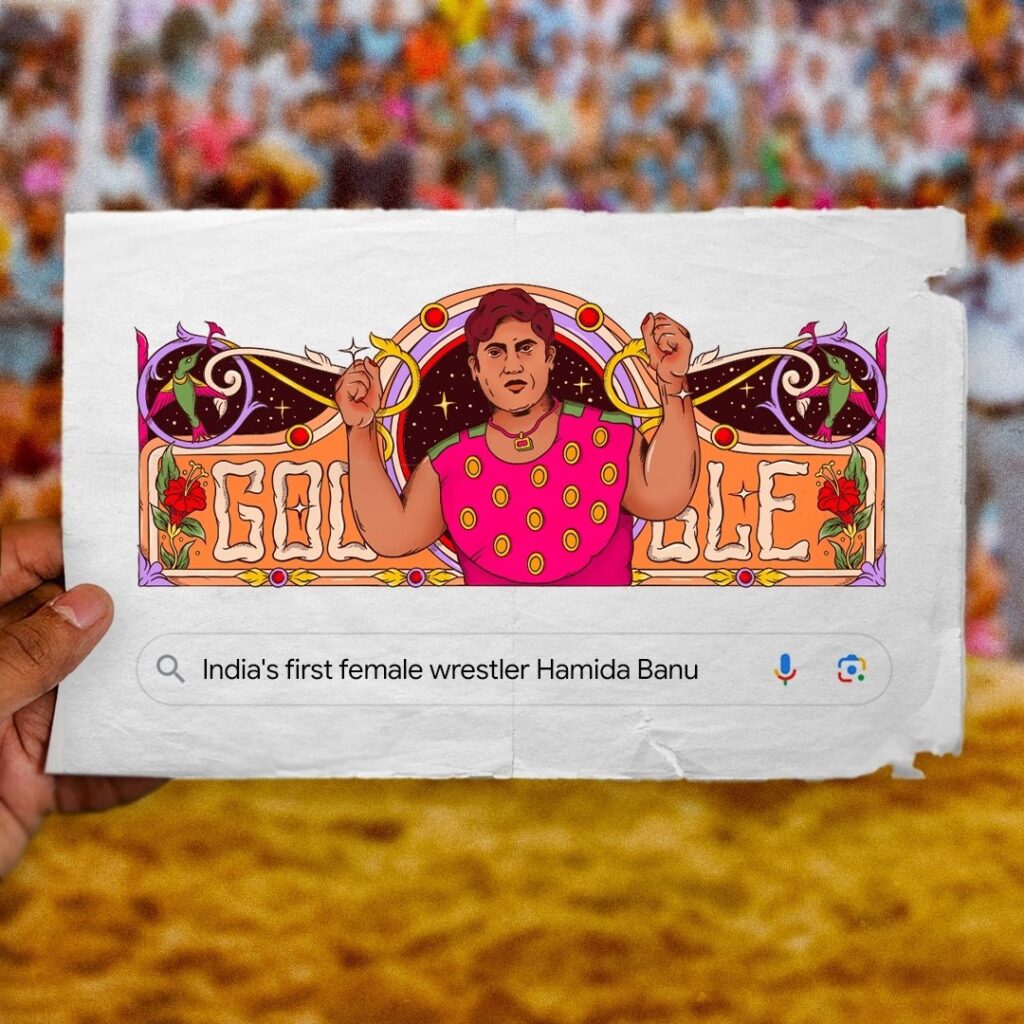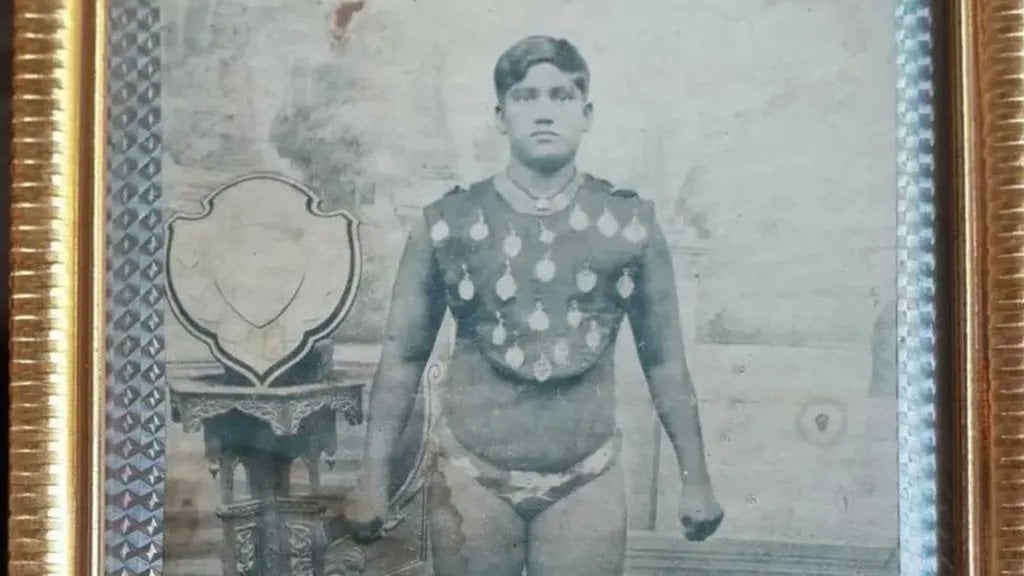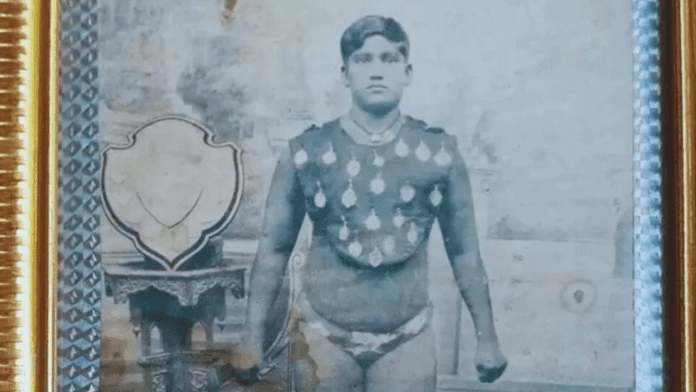The Amazon of Aligarh: Hamida Banu, India’s Pioneering Wrestler: “Google released a Doodle on Saturday, May 4, in memory of Indian wrestler Hamida Banu, widely regarded as India’s first professional female wrestler.
In short
Google’s Tribute to Hamida Banu
According to the description on Google Doodle, it said, ‘Hamida Banu was a trailblazer of her time, and her courage is remembered across India and around the world. Besides her sporting achievements, she will always be celebrated for staying true to herself.'”
Intricate details of training tools, akhadas…and at the center of it all – Hamida Banu, the wrestling legend we're celebrating with today's #GoogleDoodle made by Divya Negi 💪❤️ pic.twitter.com/GAzyoXmO97
— Google India (@GoogleIndia) May 4, 2024
Amazon of Aligarh
In the male-dominated world of wrestling, Hamida Banu carved her own path. This “Amazon of Aligarh,” as she was fondly called, shattered stereotypes and became a symbol of strength and resilience in a time when societal norms strictly limited women’s participation in athletics. Today, we celebrate her incredible journey, a story that inspires not just aspiring wrestlers but anyone who dares to dream big.

Born in the early 1900s near Aligarh, Uttar Pradesh, Hamida’s life unfolded against the backdrop of a society where wrestling was a strictly masculine pursuit. Yet, her passion for the sport burned brightly. Unlike most girls of her era, she wasn’t content with being a bystander. With unwavering determination, she began training, defying social conventions and embracing the physically demanding world of wrestling.
Her talent was undeniable. Growing up in a wrestling family might have provided an initial push, but it was her dedication and natural prowess that truly set her apart. Hamida honed her skills, her strength growing alongside her confidence. This fire within her wouldn’t be contained – she craved competition.
Hamida’s career
This brings us to the defining aspect of Hamida’s career: her fearless challenge to the status quo. In an era when women were discouraged from even entering wrestling arenas, Hamida dared to step into the ring, not just to compete, but to compete against men! She issued a bold public challenge, inviting any male wrestler to test their mettle against her, with a unique twist – her hand in marriage as the prize!
The wrestling community was shocked by this bold proposition.A queue of men, used to being in charge, gathered to challenge her.Yet Hamida showed herself to be an invincible force. Her victories accumulated, each dealing a severe blow to societal presumptions. Her exploits were the subject of newspaper articles, and word of her renown spread across all geographic areas.She was not just the first Indian female wrestler but also a global celebrity.

Hamida’s skill
One game in particular from 1954 stands out as evidence of her skill. Hamida showed great talent and agility against famous wrestler Baba Pahalwan. Even though it was brief, Hamida prevailed decisively, causing Pahalwan to announce his retirement from professional wrestling. Her reputation as a legend and genuine wrestling champion was cemented with this victory.
Hamida’s record
Over the course of her two-decade career, Hamida is said to have won over 300 matches in the 1940s and 1950s. But her legend was not based only on her successes.What genuinely struck a chord with people was her unyielding spirit that defied social standards and her audacious presence. Generations of women looked up to her, demonstrating that tenacity and strength were genderless.
Also Read : Watch| Announcement of India’s Team for ICC Men’s T20 World Cup 2024
Life Lessons
Hamida Banu’s life is more than only her career as a wrestler. It stands as a testament to the resilience of the human spirit and a reminder that challenging the status quo and following your ambitions can result in a more powerful and inclusive future. Recall the legacy of Hamida Banu, the courageous Amazon of Aligarh who wrestled her way into history, the next time you witness a female wrestler taking the ring by storm.



